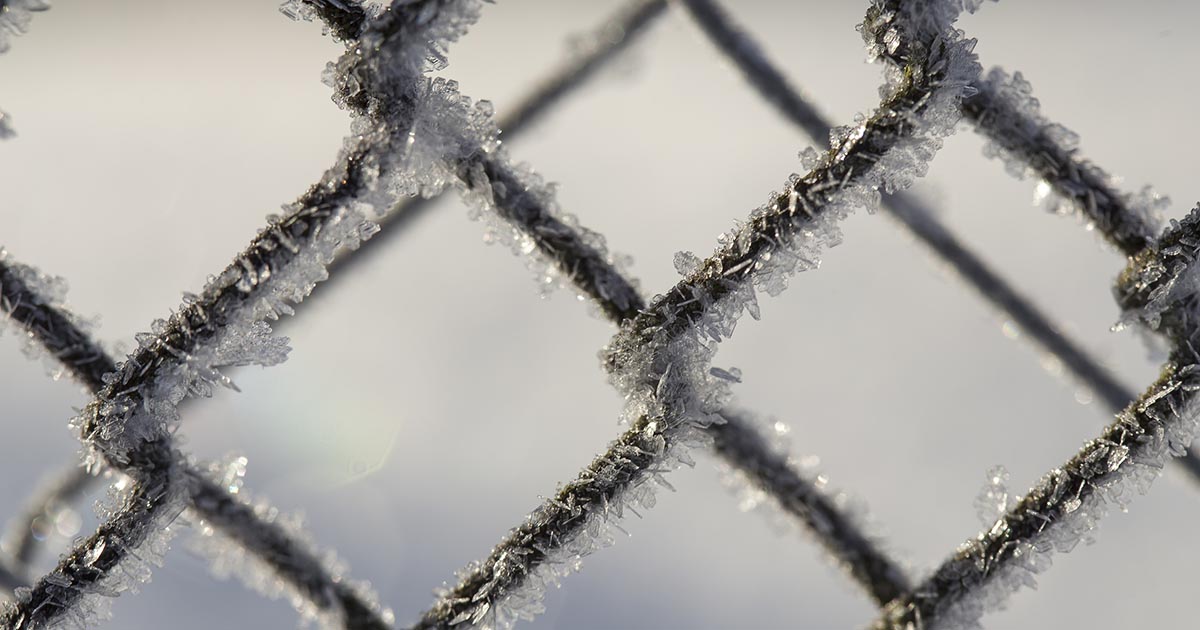What Causes Frostbite?
With winter soon approaching, you're likely already thinking about the dreaded cold and snow. Besides the threat colder temperatures pose to the roadways, and thus car accidents, the temperature itself is just as deadly as the elements it causes. Too often, there are families and individuals who end up freezing to death every year. Typically, this is due to the fact their heating unit stopped working in the middle of a rather frigid night. Older men and women, especially, are prone to possible death due to freezing. Frostbite is a sure sign you've received some damage from the cold. It's also far easier to develop than you might initially realize. To make sure you stave off the chances of developing frostbite this winter, watch out for these causes of frostbite.
Prolonged Exposure To Cold Weather

Obviously, it stands to reason the longer you are exposed to cold weather, the more likely it is you are going to develop frostbite. It works with the same logic that if you stand under a hot sun for a long enough period, you're likely going to get a sunburn, or perhaps even skin cancer if you're not wearing sunscreen and do this repeatedly. If you tend to walk to get to work, school, or it's just part of your exercise regime, prolonged exposure to cold weather makes you more susceptible to developing frostbite, especially the longer you remain exposed to cold weather.
You may start to feel numb or prickly against your skin. This is especially true in areas exposed to the cold weather directly. Your body temperature drops significantly when you're outside in the cool air. Eventually, this is going to start affecting your inside body temperature as well. Frostbite is just the first sign of a larger problem.
Learn about more potential causes of frostbite now.
Direct Contact With Ice Or Ice Packs

Individuals who play sports or exercise have no doubt had their fair share of injuries. When those injuries occurred, it was likely common to place an ice pack against the affected area to soothe pain and swelling. Did you know, however, doing so could have resulted in frostbite? Ice packs are typically extremely cold, especially if they've been sitting in a freezer for a long time. As such, when you force direct contact with ice or ice packs against your skin, you're basically forcing the area to adapt to a colder temperature extremely quickly, which isn't good for your body.
This is why it is crucial to know how to ice an injury properly, so you don't develop frostbite that could end up hurting a lot more than the injury originally did. For starters, always have a layer of something substantial between your skin and the ice pack. Even if it's just a bag of frozen peas, you need something between the bag and your skin. Additionally, only hold it there for twenty minutes at a time. Anything longer, and you're going to start feeling the telltale prickles of frostbite.
Continue for more on what can cause frostbite now.
Touching Frozen Metal With Bare Hands

Perhaps you've seen those videos of individuals sticking their tongue to a frozen bar or block of ice and getting stuck. It all seems funny, but it can actually prove to be quite harmful. The same can apply for touching frozen metal with bare hands. Because the bar is frozen, and because your hands are bare and far warmer, when they make contact with the frozen bar, a sort of seal is created. Your skin basically seals to the metal of the bar. Depending on just how big the difference is between the two temperatures, you may be stuck there for good. Not only are you prone to developing frostbite during this interval, but your skin is basically starting to die, too.
The cold is making the tissues and skin decay since they're unable to produce enough heat to keep themselves alive. If you're all alone and unable to ask for help, you could end up stuck where you are. This only leads to further exposure to the cold air, which means developing further frostbite along your body.
Keep reading for more information on the causes of frostbite.
Medical Conditions That Increase Cold Sensitivity

An individual might be suffering from medical conditions that increase cold sensitivity and not even know it. Medical conditions increasing cold sensitivity include hypothyroidism and Raynaud's phenomenon. In regards to hypothyroidism, the thyroid gland is unable to produce the amount of energy the body needs. It can make you feel weak, tired, and render your body incapable of producing enough body heat to stay warm in the colder temperatures.
Raynaud's phenomenon is especially risky, as it basically exacerbates frostbite. For seemingly no reason, the patient's body reacts strongly to the cold and makes blood circulation extremely difficult for certain parts of the body. This can make frostbite set in extremely quickly and spread over the body at a faster rate than it typically would. If you suffer from any of these conditions, take extra care in the colder temperatures.
It's time to get to know the next cause of frostbite. Keep reading now.
Wearing Insufficient Clothing In Cold Weather

Perhaps the biggest mistake anyone can make is wearing insufficient clothing in cold weather. For individuals who are simply taking a walk down the sidewalk or a quick stroll to the mailbox, it may not seem prudent to put on a weather coat or gloves. However, if the temperatures are dire enough, and if there's an added element of wet snow or rain, it can have a great impact on your body's temperature. By not having the correct amount of layers on, or any layers at all, to defend your body against the cold temperatures, you're allowing your body to have direct contact with cold air. It doesn't matter how long you are outside, direct contact is already at work in developing frostbite. As such, it is critical to wear sufficient clothing in winter.
